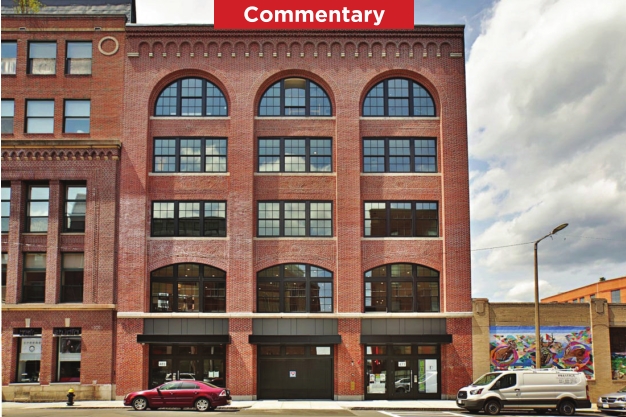
When it comes to NIMBY opposition that derails plans for new housing, it’s not just the neighbors raising a stink.
Sometimes it’s rival developers worried about the competition that are to blame for purposely gumming up the works.
That’s apparently the case with Arthur Leon and JACE Boston, a major South End property owner who now finds himself staring at a $5.8 million court judgment.
Last week, a Suffolk County Superior Court jury found that Leon and JACE had abused Boston’s permitting approval process, and in one case the criminal justice system, in a bid to obstruct plans for a $20 million high-end condo building next door to one of their South End properties.
The
attempt failed, but not before delaying plans for what are now the
Jordan Lofts at 477 Harrison Avenue, at one point driving the developer,
John Holland, to the brink of bankruptcy.
The
verdict capped more than a decade of dueling lawsuits over Holland’s
ultimately successful plans to convert an older commercial building into
loft-style condo units, which opened in 2016.
Still,
complicating matters from the start, one of the walls of Holland’s
Harrison Avenue building was connected by a seam with that of Leon’s old
Washington Street industrial building. When Holland first informed Leon
of plans to redevelop his Harrison Avenue building, originally built in
1913 as stable for the old Jordan Marsh & Company, the fellow
developer and property owner asked him to wait a year.
Leon claimed he had his own plans for a big mixed-use project, Holland testified.
In
fact, Leon was particularly concerned about Holland’s plans to build
pricey penthouses, arguing it would attract rich people who would then
object to his plans to redevelop his own building, Holland testified.
When
Holland refused, Leon and JACE pursued an everything-but-the-kitchen
sink legal strategy, filing two successive zoning board cases while also
dredging up an easement dating to the 1920s to prevent any change to
the first two stories of the wall.
At
one point, Holland also faced a criminal complaint, with Leon claiming
that the developer had gained unauthorized access to the roof of his
building at 1234 Washington Street. The claim was dismissed, with
Holland making clear there was nothing to it, but by simply filing it in
the first place, Leon endangered his bank financing for the project,
Holland’s lawyers contend.
According
to testimony by a cousin, Leon stated that he intended to drive Holland
into bankruptcy and then buy his building at a bargain-basement price.
Leon
certainly appears to have come close. Holland was forced to undertake
an expensive redesign of the project, while dropping plans to convert
the second floor, potentially the most profitable, from commercial use
to condos.
All told,
Holland contends that the dispute with Leon and JACE cost him nearly $12
million, according to court filings. That includes more than $5 million
in increased costs, $6 million from the loss of plans to convert the
building’s second floor to residential.
“The
evidence is overwhelming that the Defendants commenced three civil
suits and filed an application for a criminal complaint for ulterior
motives and illegitimate purposes, designed to stop the development of
477 Harrison to gain an advantage in their desire to develop their
property or to bankruptcy,” lawyers for Holland argued in a court
filing.